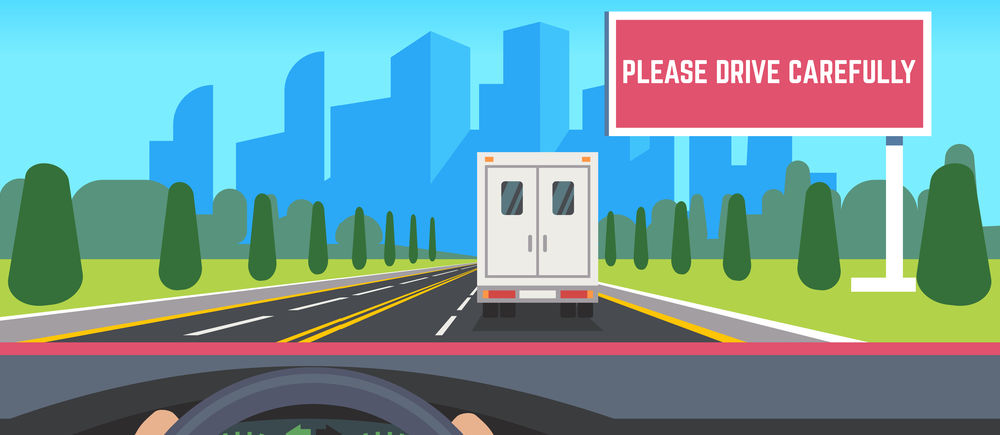A study released in January by the Advocates for Highway and Auto Safety rated all 50 states on highway safety laws. Indiana landed somewhere in the middle of the rankings because of several laws Advocates considered to be necessary not being on our state’s books.
The purpose of the Advocates (an alliance of consumer, health, safety, law enforcement groups, plus insurance companies and agents) and their yearly reports is to push for policy initiatives that would improve highway and auto safety and therefore save lives.
In this latest (19th) roadmap of highway safety laws, the Advocates highlight the tragic amount of what they described as “carnage” on the nation’s roads over the past year. Data from the Department of Transportation (DOT) and the Fatality Analysis Reporting System (FARS) show that the number of deaths caused by motor vehicle crashes increased 20% in the first 6 months of 2021 when compared to the previous year.
One might assume that 2020 was a year with low fatalities because of the huge number of people who worked from home, but even 2020 saw a rise in fatalities of 7% over the previous year.
The Advocates for Highway and Auto Safety report focused on 16 motor vehicle laws divided into 5 categories that could save lives if enacted. The 11 states marked red are judged to be in danger; the 31 states marked yellow need improvement, and the 8 states (plus DC) marked green are said to be good because they have adopted all of the Advocates’ recommended optimal laws.
Indiana was marked yellow.
The 5 categories are:
- Occupant Protection:
Almost 50% of passenger vehicle occupants killed each year are unrestrained. - Child Passenger Safety:
In an average year, more than 1,000 children aged 14 and younger are killed in motor vehicle crashes. - Teen Driving:
This is concerned with Graduated Driver Licensing (GDL) Programs. Annually, more than 4,500 people die in crashes involving young drivers (aged 15-20). - Impaired Driving:
On average, more than 10,000 people die each year as a result of a crash involving a drunk driver. - Distracted Driving:
More than 3,000 people die each year in accidents involving distracted drivers.
The annual economic cost to society for motor vehicle crashes in the United States is $292 billion. This amount includes present and future medical costs, property damage costs, lost workplace and household productivity costs, and miscellaneous costs. This doesn’t even include the loss of life, pain, suffering, and decreased enjoyment of life. In Indiana, the average annual cost of motor vehicle crashes is $7.696 billion.
Proposed laws that Indiana could pass which would improve our rating and safety records:
Occupant Protection:
- Indiana does have primary enforcement of front seat belt and rear seat belt laws.
- Indiana does not have an all rider motorcycle helmet law. The study notes that motorcycle helmets reduce the risk of death by 42%.
Child Passenger Safety:
- Infants and children up to the age of 2 (older in some cases; it depends on size and weight) should be placed in rear-facing child restraint systems.
- Children who size and age out of rear-facing restraint systems should be restrained in a forward-facing booster seat (safety seat) until they are 8 years old and 57 inches tall.
- Indiana has neither of these laws yet; neither does Kentucky or Ohio. Illinois does have laws requiring the rear-facing child restraint system.
Teen Driving:
- It is recommended that the minimum age for a learner’s permit be 16. Currently, Indiana drivers can obtain a learner’s permit at the age of 15 if they are enrolled in an approved behind-the-wheel training course.
- Indiana does already require a 6 month holding period provision.
- Indiana already requires 50 hours of supervised driving (10 after dark) before becoming eligible for a provisional license.
- Indiana does have nighttime driving restriction provisions, but they are not as stringent as the Advocates recommend.
- Indiana already has a passenger restriction provision in place.
- Indiana has unrestricted drivers’ licenses at the age of 18, but studies show that extending the age to 21 would save lives.
Impaired driving
- Indiana does not have an ignition interlock device requirement for all previous offenders of drunk driving. Currently, IIDs are mandatory for all offenders, including first-time offenders, in 34 states and DC.
- Indiana does have child endangerment laws that create a separate offense or increase penalties for people who drive while impaired with children in their vehicle.
- Indiana does have open container laws.
Distracted driving
- Indiana is already one of 46 states (plus DC) that bans text messaging for all drivers.
- Indiana is already one of 31 states (plus DC) that has cell phone use restrictions for drivers.
Cathy Chase, president of Advocates for Highway and Auto Safety, told Fox 59 Morning News that the alliance does more than simply advocate for legislative change in states. It also makes “requests on the federal level for improvements to the car,” such as requiring automatic emergency braking for all cars (not just the high-end cars).
If you have been involved in a motor vehicle accident in Indiana, call (317) 401-8626 to schedule a consultation to discuss your situation with an experienced car accident lawyer at Crossen Law Firm.

 317-401-8626
317-401-8626 
.jpg)